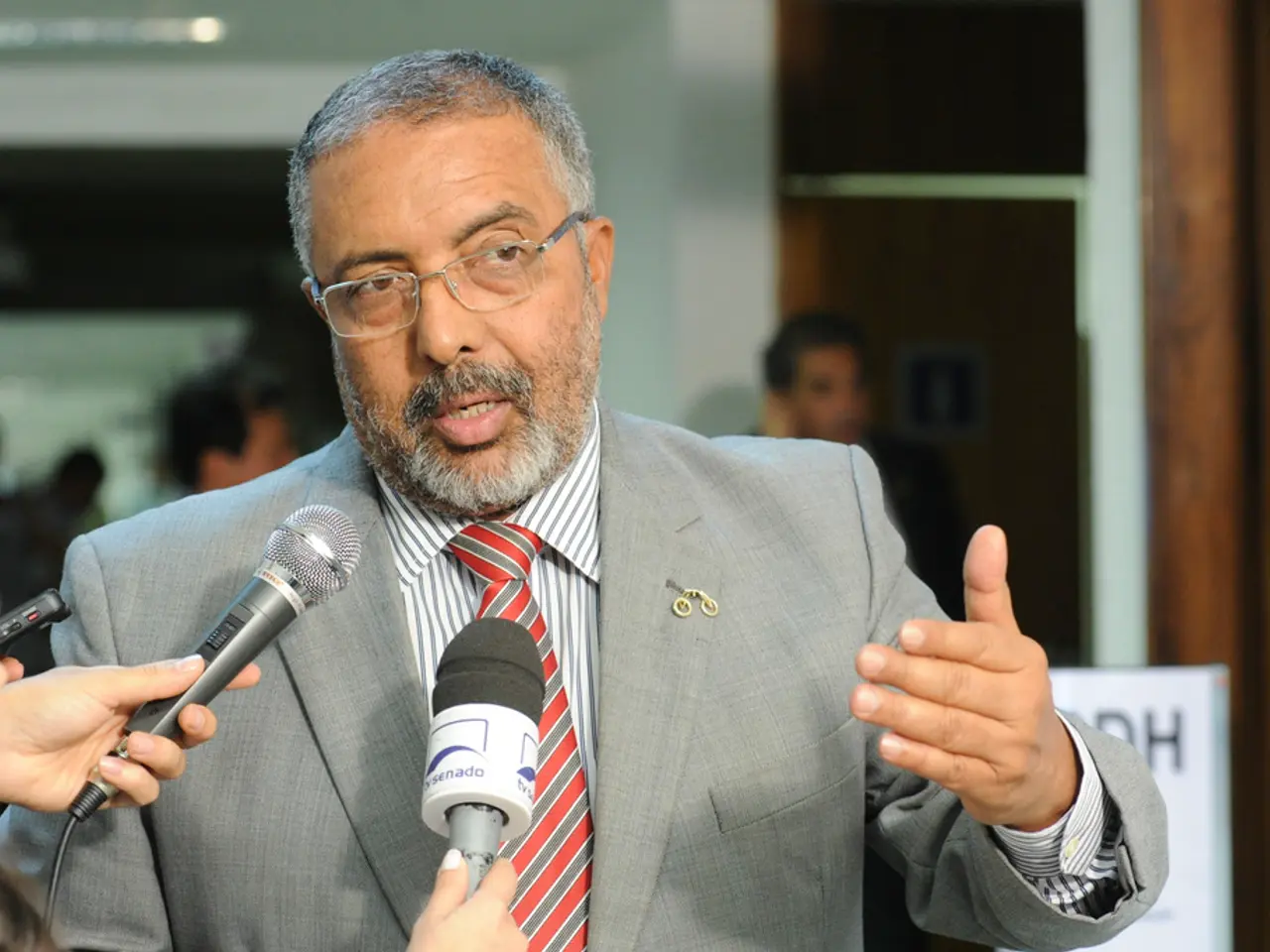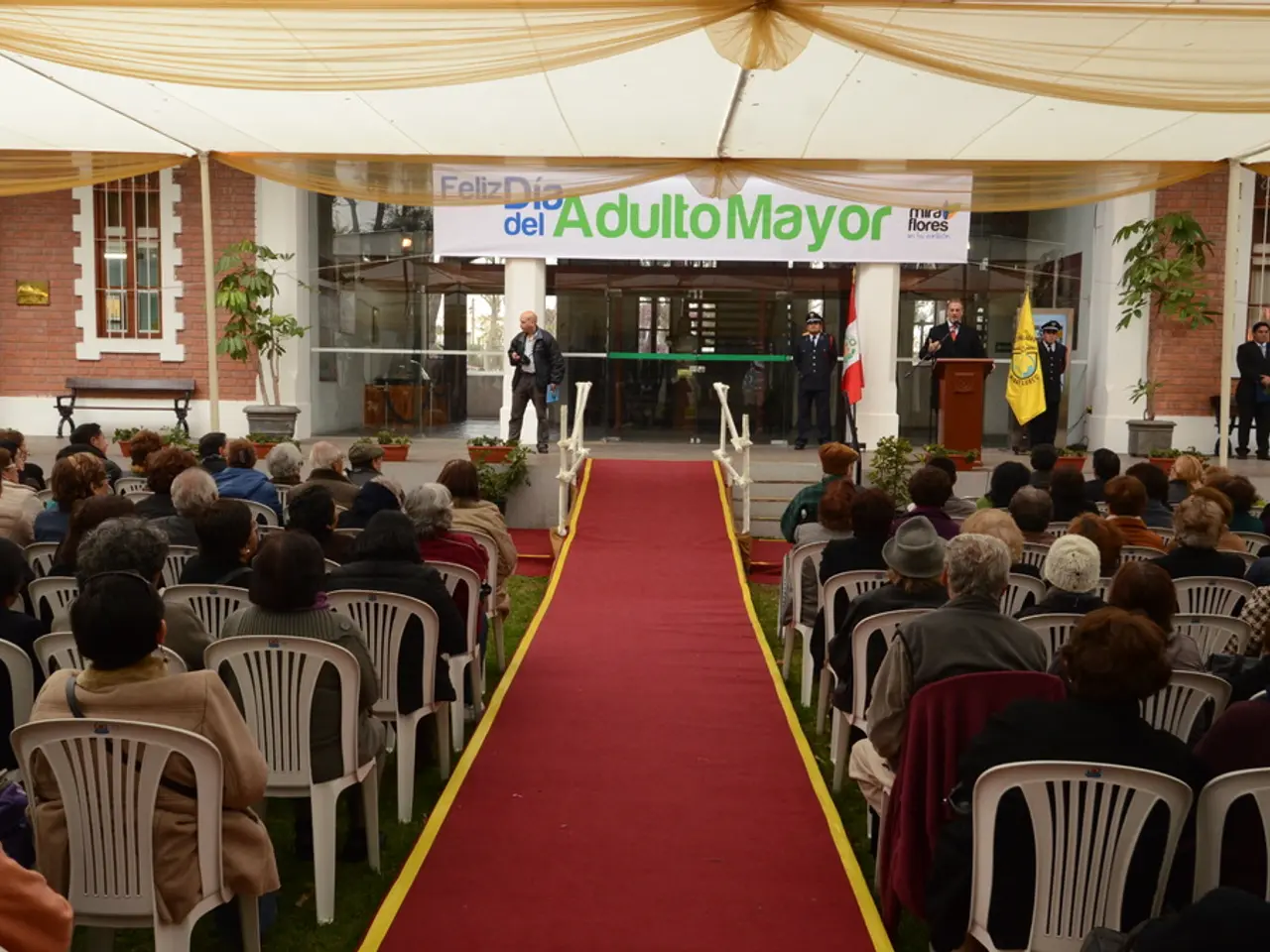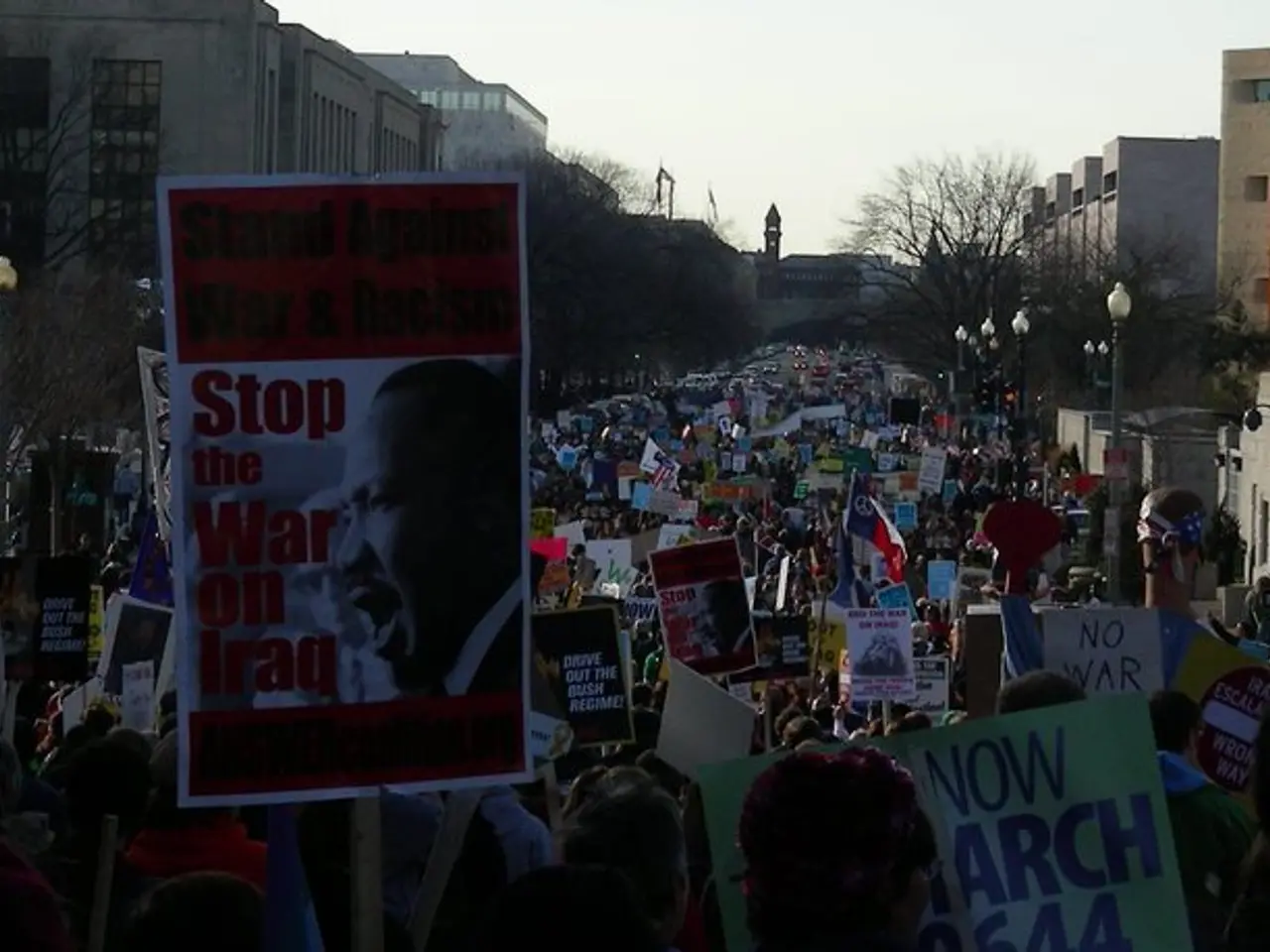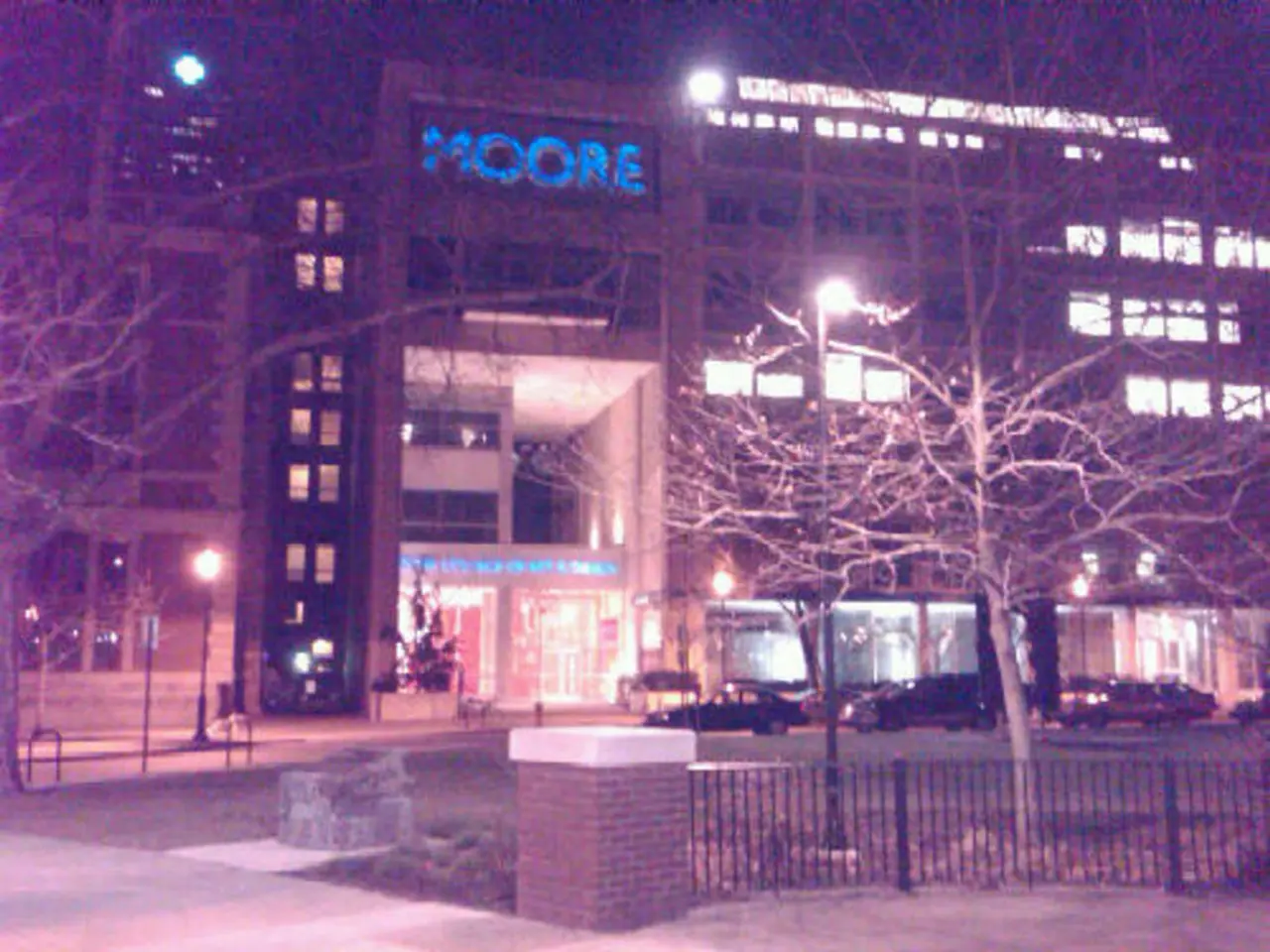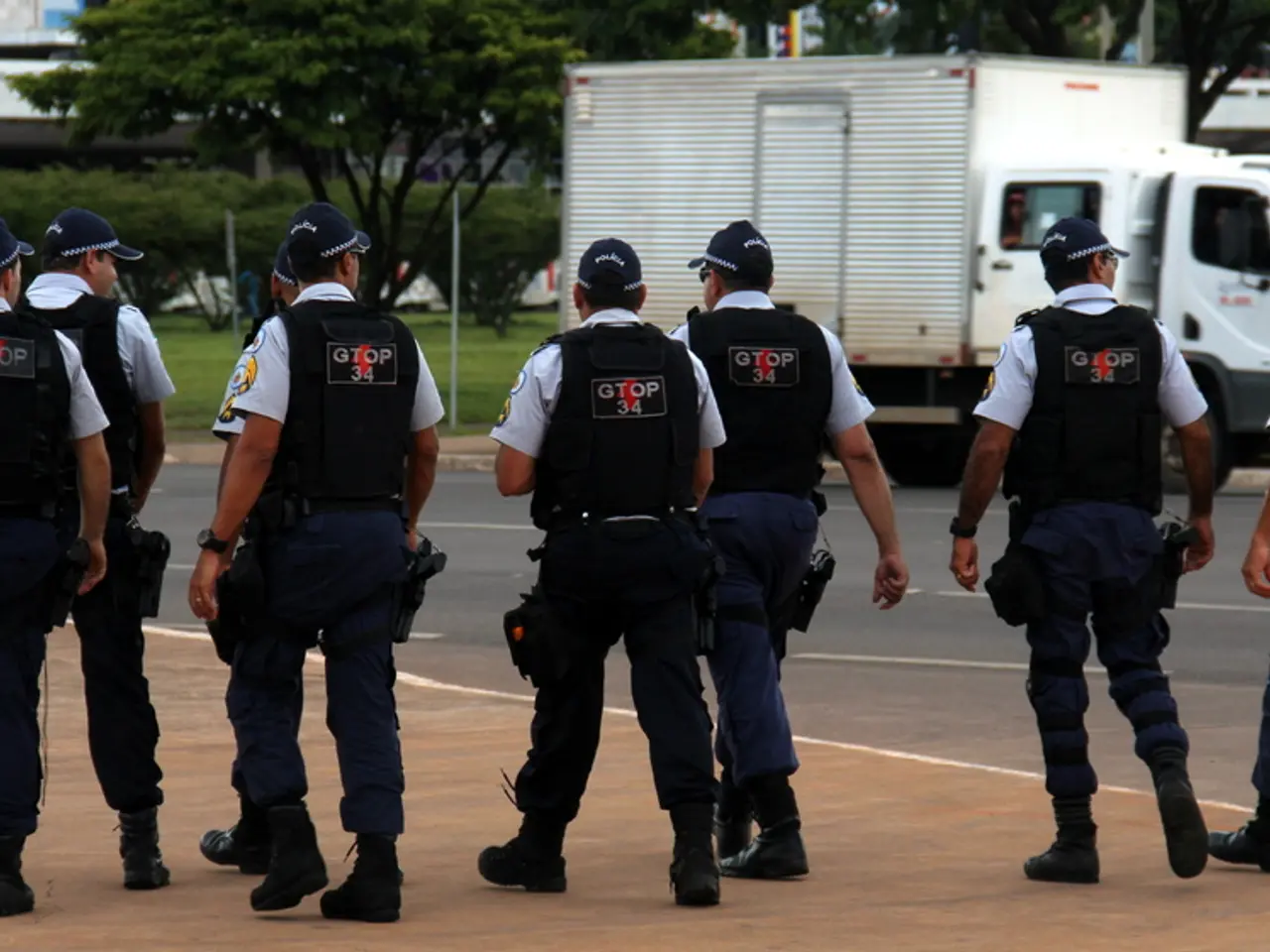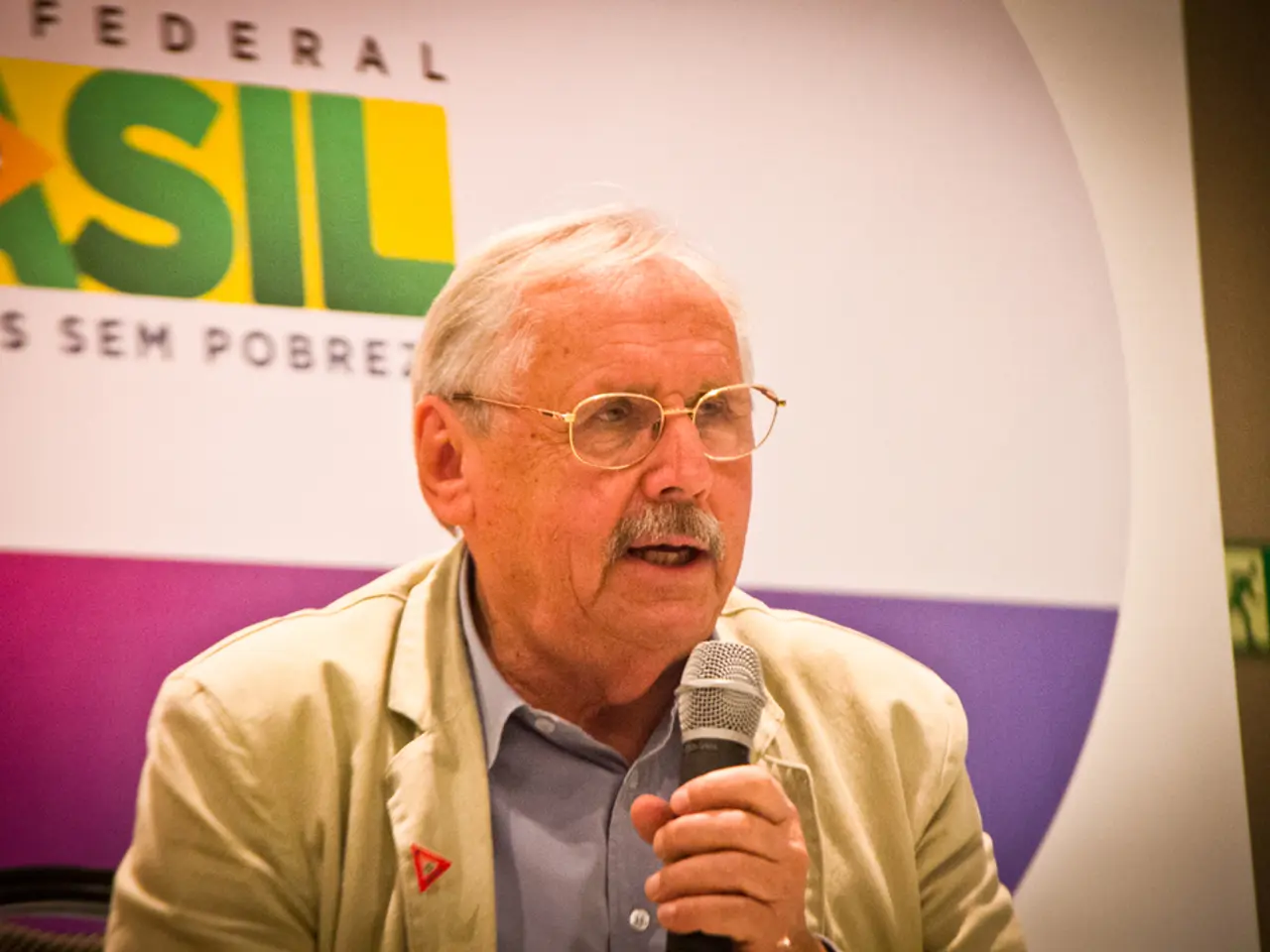Criticizing Milei, Argentine Journalist Fabián Waldman claims that journalists working in Casa Rosada are being labeled and discriminated against
In the heart of South America, Argentina, once a beacon of press freedom, is now grappling with significant challenges under the current administration of President Javier Milei. The country has plummeted 47 places in the World Press Freedom Index, ranking 87th out of 180 countries in 2025 [1][2].
This decline is marked by escalating attacks and restrictions on journalists, particularly those covering protests where police have used excessive force. In May 2025 alone, at least nine journalists were attacked, and three were arbitrarily detained during protests [1]. The streets have become a battlefield for journalists, with many requiring anti-gas masks, eye protection, and helmets due to the brutality of the security forces' repression.
The Milei administration's economic policies, which have sparked widespread protests due to high poverty and social costs, have not spared the media. Over 70% of journalists are struggling to cover the basic basket in their main job [3]. This economic hardship, coupled with the government's repressive apparatus and a silenced press, has created a daunting environment for independent journalism.
The government's party, "Libertad Avanza," is not shy about restricting civil liberties, not only at the Casa Rosada but also on the streets. Access to public information is limited and opaque, with countless visits to the Quinta de Olivos due to the president's infrequent visits to the Government House [3]. Journalists working at the Casa Rosada are not allowed to move freely, and key points are guarded to monitor who enters and leaves offices.
The Casa Rosada continues to upload distorted videos and information on the networks despite being questioned about their accuracy. This is not new, as Argentina has a history of violence against journalists, with colleagues having experienced assassination, disappearance, and torture in other eras [4].
The use of artificial intelligence has been employed to tarnish the work of journalists, as seen with a fake video made of Hernán Mundo of Radio Nacional. Journalists, like Fabián Waldman, who has been working at the Casa Rosada as a chronicler since 2016, have been the target of defamation campaigns, harassment, and fake news on social media.
The current state of press freedom is further compounded by a proposed regulation that aims to accredit journalists or communication media based on clothing or attributes deemed appropriate by the government. Manuel Adorni, the presidential spokesperson, has referred to Waldman as "Mr. Arrogant" or "Mr. Tamed." Javier Milei, the president, has expressed being "tired" of Waldman's questions and presence.
In this climate of increasing pressure, self-censorship among media and activists is growing, with fears of retaliation. Indigenous communities protesting for constitutionally guaranteed rights have also faced intimidation and repression. The Milei administration's actions have raised serious concerns about the future of press freedom in Argentina, a country that once stood as a bastion of free speech and independent journalism.
References: [1] Reporters Without Borders. (2025). World Press Freedom Index. [online] Available at: https://rsf.org/en/ranking
[2] Freedom House. (2025). Freedom in the World 2025 - Argentina. [online] Available at: https://freedomhouse.org/country/argentina/freedom-world/2025
[3] Amnesty International. (2025). Argentina: Escalating Repression against Journalists and Activists. [online] Available at: https://www.amnesty.org/en/latest/news/2025/06/argentina-escalating-repression-against-journalists-and-activists/
[4] Committee to Protect Journalists. (2025). Attacks on the Press in Argentina. [online] Available at: https://cpj.org/2025/05/attacks-on-the-press-in-argentina/
Journalists in Argentina are facing significant challenges, as the average journalist struggles to cover the basic basket of necessities due to the economic policies of the current administration [3]. The government's repressive actions, including attacks on journalists, limited access to public information, and self-censorship, have created a daunting environment for independent journalism, particularly those covering politics and general news [1][3][4]. This decline in press freedom, marked by escalating attacks and restrictions on journalists, has raised serious concerns about the future of free speech and independent journalism in Argentina.
